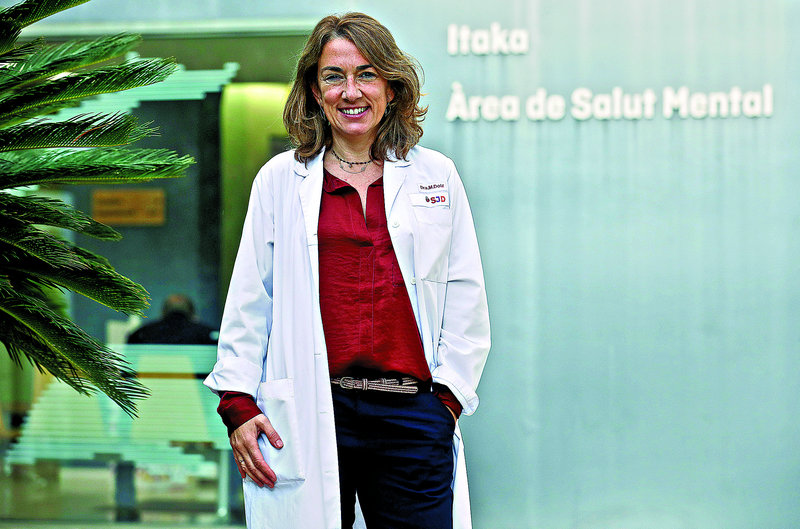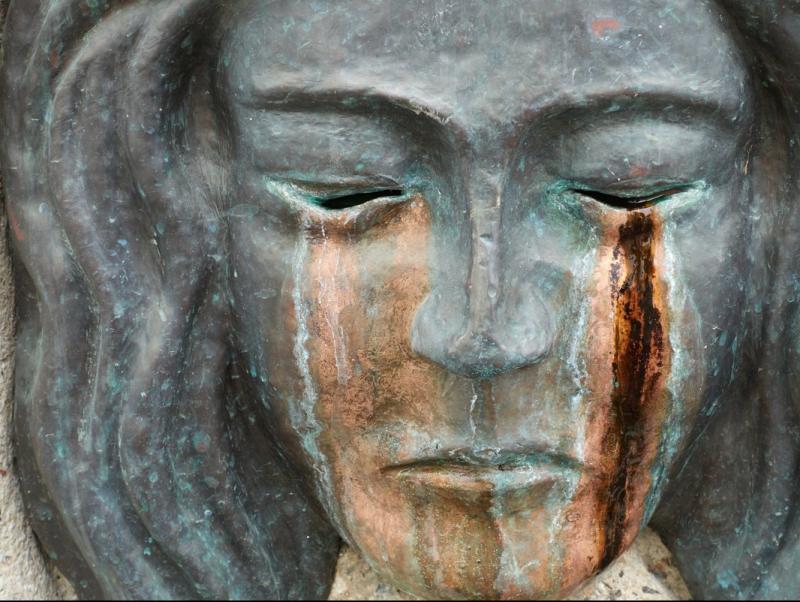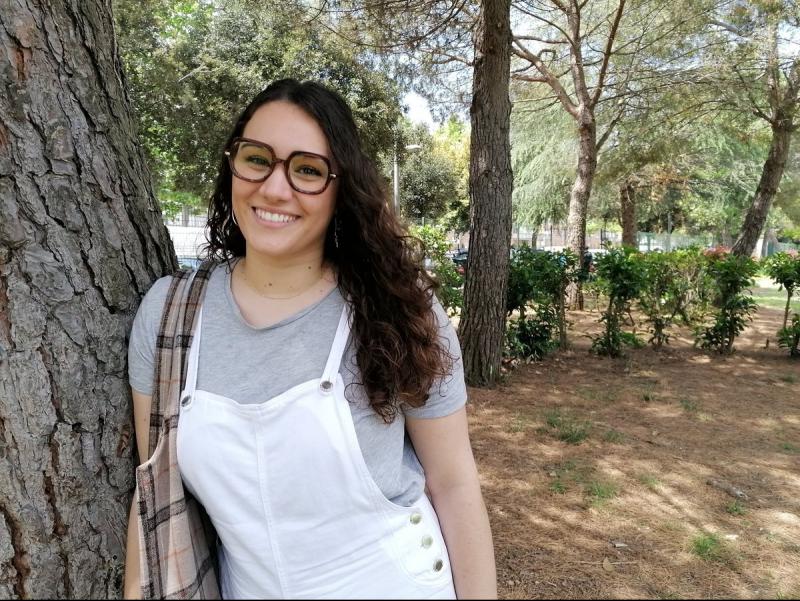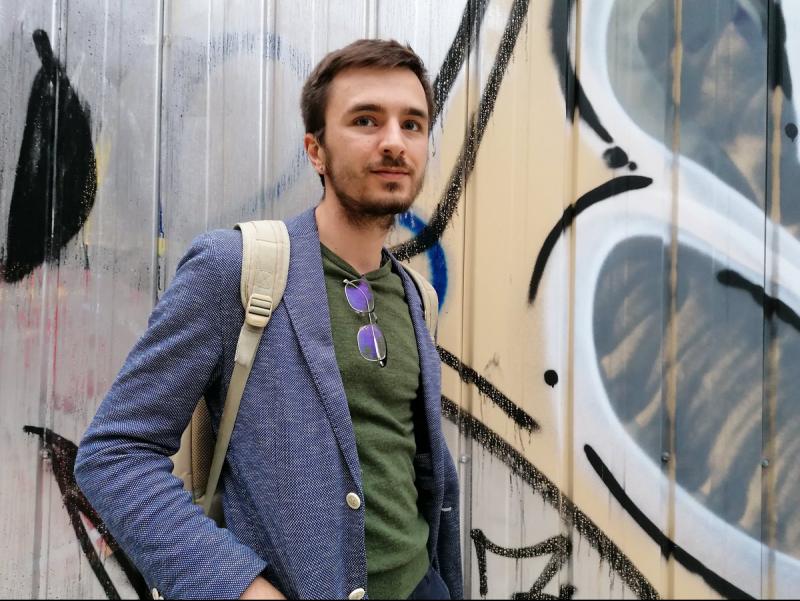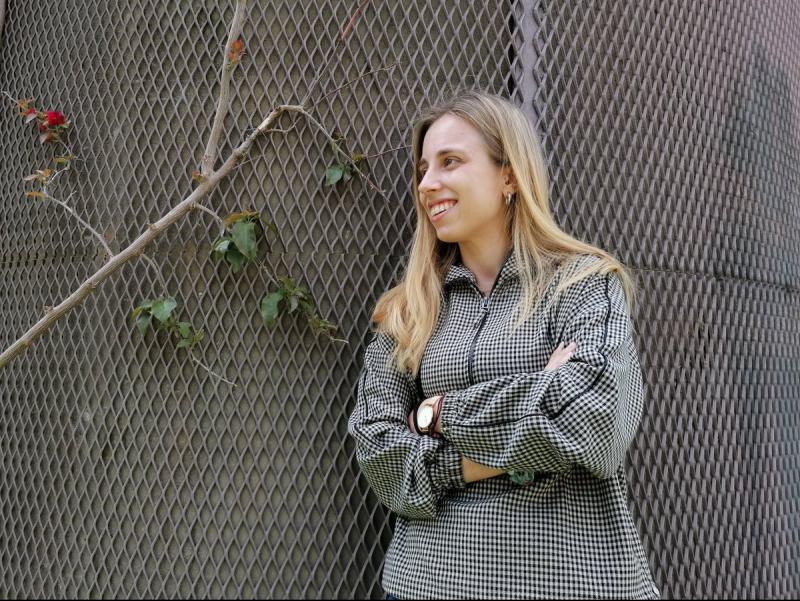Features
Montse Dolz
“Family members are key to the mental health of young people”
Mental health emergencies among teenagers have grown by 47% at Barcelona’s Sant Joan de Déu Hospital as the pandemic has aggravated a delicate scenario
Some consequences of the pandemic are already evident, but others will take time to reveal the full extent of health crisis. The effects on the mental health of young people is one of them.
We don’t talk much about teenage mental disorders.
The data from the FAROS report, which we have drawn up over the past three years with the aim of showing the importance of being attentive to the mental health of young people, show that it is very relevant as a risk factor for mental illness in adult life. Almost 70% of cases start before the age of 18.
But they are not easily detected.
They are very difficult to see, in large part because many of the signs are hard to distinguish from adolescence itself or other non-mental illnesses. It’s like detecting whether a fever is due to a simple virus or the start of something more serious. Detection is the most useful tool we have to prevent mental illness in adulthood. We should remember that these pathologies account for three of the seven causes of most disability in the world. So, there’s no doubt about it, it’s an important topic and we need to be vigilant.
Mental health emergencies in teenagers at your hospital grew by about 50% in the first quarter of the year.
The pandemic has brought unexpected demand that has focused on emergencies. We’re not so sure there’s been an increase as a shift from the usual consultation centres to the hospital. Primary care centres and mental health centres were overwhelmed by Covid and many patients had to delay their visits. When they couldn’t wait any longer, they came to the emergency room.
Has the health crisis affected young people more?
It’s shaken us all and we need more time to be able to compare with other groups, such as the elderly. Yet it is true that the rise among young people is very visible. But we can’t fall into the error of overprotection and we must work to make them resilient and give them tools so they can face the rigours of life.
Is mental illness more pronounced in children?
I feel that, unlike adults, young people tend not to stigmatise mental illness. Also, especially in childhood, parents are increasingly able to seek professional help. I think we’ve been able to incorporate it in a gentler way, especially on the part of psychology, and also because over the years the onset of mental illness has come at an earlier age. Certainly the impact of social media on aesthetic trends is clearly a reason why a certain symptom appears, due to discomfort manifested when trying to copy some predetermined model of beauty seen constantly. Excessive consumption of these stereotypes can end up affecting the most vulnerable.
Are there any easy recipes to counteract this excess?
The involvement of all family members is indispensable, and following certain easy guidelines is recommended. For example, sharing meals, where you can quickly see any problems while allowing you to exchange information, to listen, to advise. Children can then see how parents solve problems, what techniques they use, and whether they can use them as well. In the specific case of eating disorders, sharing meals helps us to detect early whether children are finishing their food or if when they finish they immediately go to the bathroom, or even if they change their clothing, preferring baggy clothes that don’t show the body’s contours.
Eating disorders continue to top the list of mental illnesses.
Consultations for anorexia, bulimia and binge eating went up by 25% between December 2020 and February 2021, compared to the same period the year before. And the number of urgent cases has doubled. Once a eating disorder sets in, it’s very hard to overcome. It develops slowly and can take years to resolve. The therapeutic interventions are very long-lasting, slow-moving and often exhausting for families.
Do families have the tools to deal with a mental disorder in a child?
In general, I think they have enough skills to properly raise their children, and we mustn’t forget that we’ve incorporated knowledge from generation to generation. Yet when there is a mental health problem it becomes a major challenge and is overwhelming. It’s not the same dealing with an arm break, appendicitis or even a chronic condition such as diabetes as it is dealing with a mental disorder. The tools to fight it are more complex because it affects what we feel, what we think, how we define reality. Families need guidance from professionals but they also need to know that young people will recover with help from family. The family is key to the mental health of young people.
Self-harming has also increased.
Yes. So far, we’ve found that these are mild cases and we link them to wrongly channelling emotions and feelings under conditions of lockdown and restrictions. It should be noted that these are attitudes with a high risk of spreading and should be addressed from the schools themselves.
Speaking of schools. Has closing them affected the mental health of pupils?
We assume that the decision to close schools was made taking into account all the factors, and so there’s nothing to be done about it. Yet we’re talking about a place for socialisation, which is very important for meeting and playing with one’s peers. Fortunately, the schools were only closed for a short time! If the closure had gone on longer, it would have had a very big impact. Acute situations are much better tolerated than chronic ones, and over time we adapt to them. Humanity has experienced and overcome many tragedies during its history.
Is there a rise in aggressive behaviour in minors?
We have not registered that and focusing on specific cases doesn’t help us to approach the problem correctly. Aggressive behaviour is common in adolescence because it’s a time of change and maturation. One of the last areas of the brain to mature is the frontal lobe, which regulates impulsivity, behaviour and planning. We must not tolerate any aggression, but our sons and daughters need us to be able to grow, including emotionally.
feature mental health
Doctor and scientist
Montserrat Dolz graduated in medicine and surgery from the University of Barcelona in 1997 and specialised in psychiatry at the Sant Joan de Déu Health Park in 2000. She is head of mental health at the same hospital. “We know that caring for the mental health of young people with utmost rigour and professionalism has an impact on their lives. This is what motivates me every day,” she says.
Related news
Leave a comment
Sign in.
Sign in if you are already a verified reader.
I want to become verified reader.
To leave comments on the website you must be a verified reader.
Note: To leave comments on the website you must be a verified reader and accept the conditions of use.

